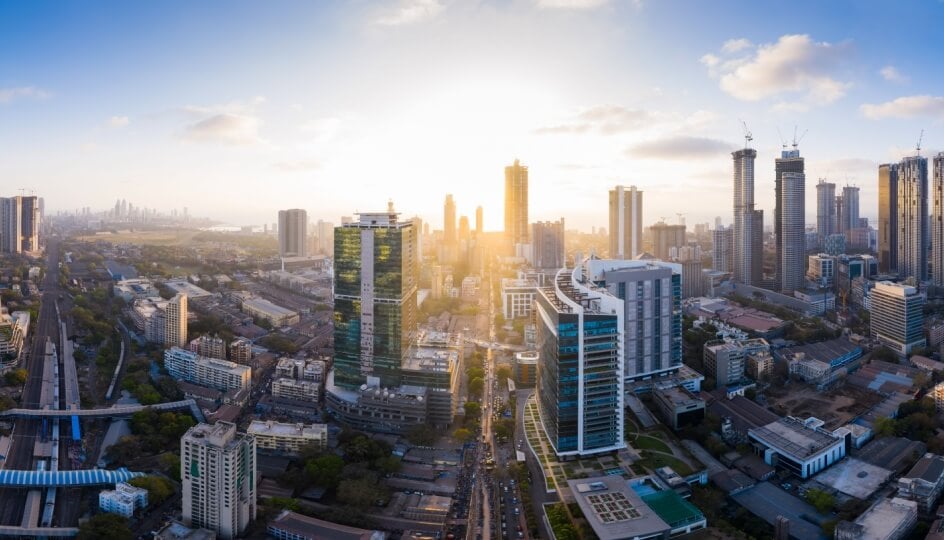The ten most complex jurisdictions for doing business in 2023

TMF Group’s Global Business Complexity Index 2023 explores 292 different indicators relating to business complexity, to provide in-depth analysis of the global and local challenges that impact on the ease of doing business around the world.
Here, we take a closer look at the jurisdictions that top this year’s index, exploring the factors that contribute to their position at the top of the ranking. While business complexity is high in these locations, opportunity often awaits those who can navigate it successfully.
Our message isn’t to avoid investing in complex jurisdictions; rather, it is to invest with eyes open, and be ready to manage the rules that might otherwise put your operations at risk.
We hope that these insights from the GBCI will help you to pick and manage your target markets with greater confidence.
View the GBCI 2023 report in full here.
Ten most complex jurisdictions
1. France
France takes the top spot in this year’s GBCI, following two years in second position. Factors making it the most complex place to do business include the focus on maintaining traditional ways of working, such as the use of the French language, and the continuation of historically stringent employee protection laws.
France tends to be an early adopter of international legislation, partly because of its role at the forefront of the EU. Complexity can increase as a result of the country implementing changes quickly, but in the long term it becomes more simplified and stable, with investors knowing where they stand compared to jurisdictions that may be slower at implementing global standards.
The commitment to standards in France also means that the business environment is safer, and organisations and workers alike are offered greater protection by the French government. The French government has continued to provide businesses with support during challenging times, from the Covid-19 pandemic to the high inflation rates France is currently witnessing. For example, as energy prices rocket worldwide, the French government has been offering support to cover expenses, particularly for smaller and more vulnerable businesses, providing crucial assistance during tough times.
Despite the legislative challenges, France is a highly attractive jurisdiction in which to do business, and in certain areas the government is making progress in developing more simplified processes.
While France is a business-friendly country, it can also be challenging for foreign businesses. Labour laws are particularly complex with a high protection of the employees, the regulatory environment is very strict, and the French language still remains predominant in many areas, particularly with administrations.
2. Greece
Greece moves up from sixth place in 2022, continuing to rank very highly for the complexity of its business environment. A key factor is the number of changes in legislation that occur each year, particularly when it comes to accounting and tax.
The country is part way through a large scale digitalisation programme, which is causing issues for businesses navigating the new requirements. For instance, the implementation of MyData for accounting requires all submissions for books and balance sheets to be electronic. As is the case for wider legislative changes observed in Greece, new digitalisation requirements are demanding multiple deadlines with different credentials on different platforms, meaning businesses need time to understand and adapt to the new processes. These new processes are also draining the Greek authorities’ own resources, meaning it takes longer for them to respond to queries and book necessary appointments.
Within the next couple of years, an electronic timecard system will be implemented for employees in Greece, meaning investment will be required by businesses to implement this new way of working. It is likely that, given its digital journey and historic complexity, Greece will continue to be a challenging environment as it adapts to new requirements. However, it is expected that, in the long term, digitalisation will make things easier for business.
Greece remains a challenging environment to do business in, especially for foreign investors. We have officially entered the realm of electronic bureaucracy, with hundreds of platforms.
3. Brazil
Brazil drops down two places from its place at the top of the ranking last year, but it continues to be a challenging place to do business. A key driver to its complexity lies in accounting and tax processes in the jurisdiction. The Brazilian tax system is made up of three layers – city, state and federal – and these make for a densely regulated environment. On top of this, there are frequent tax regulation changes. For a business to enter the Brazilian market, they need to understand the demanding structure and seek expertise to navigate the market.
Despite this, steps have been taken in Brazil to make operation simpler for businesses. Over the past 12 months, there has been a simplification of foreign exchange control rules and other requirements that are specifically applicable to foreign investors. Additionally, for funds services there has been a revision of the regulatory environment, which is expected to make processes simpler in the future. With Brazil moving towards the global regulatory framework for compliance, consistent processes and legislation should make things easier for businesses that are already familiar with global regulation.
Although the challenging geopolitical environment is causing difficulties for businesses globally, some jurisdictions like Brazil have become more attractive to investors. For example, many businesses that are now unable to operate in Russia have moved to Brazil.
Brazil is full of opportunities for long term investments. Short-term initiatives will be further impacted due to Brazilian complexity and bureaucracy.
4. Mexico
Mexico’s high ranking is mainly due to the mandated processes in place in the jurisdiction. For instance, there are still a lot of face-to-face requirements in place, which can present challenges for international businesses with senior directors residing elsewhere.
Furthermore, legislation can be unclear and open to interpretation. For example, in 2022 Mexico introduced UBO requirements. There was a lack of clarity when they were launched around what documentation was needed for businesses to incorporate. Notaries who approve businesses without the correct documentation are subject to hefty fines and sanctions, so tend to take a risk-averse approach to signing off required documents. This means that organisations can find it difficult to incorporate in Mexico.
The Mexican government is also facing some controversy due to its position on renewable energy, taking a clear stance to block foreign investment into renewables in favour of supporting more traditional fuel-based energy sources. This is a polarising decision because the negative environmental impact is countered by the financial support it provides to the many Mexicans working in fossil fuel industries.
Most of all, investors need to trust the rule of law. It exists and it is observed. They also need to be ready to go through a period of understanding processes and procedures to stay compliant and they need to adapt to the way of doing business in Mexico.
5. Colombia
When foreign businesses enter Colombia, there can be some initial struggle to understand how certain laws and regulations work. Colombia is a highly regulated jurisdiction, so adhering to its many laws is an essential aspect of operation. For instance, when transferring funds between jurisdictions, specific requirements need to be met, such as filing an exchange market form. Once businesses understand and are familiar with this process it doesn’t create too much complexity, but it’s an example of how adapting to doing business within Colombia can initially prove challenging.
In the past 12 months, Gustavo Petro has been elected as the new president of Colombia. Petro is left wing, which has created some tension as, prior to his election, the government was more right wing. Furthermore, tax reform that was approved in December 2022 will bring complexity for organisations operating within the jurisdiction, as they adapt to the changes.
Colombia has also seen a devaluation of the Colombian peso, related to wider issues linked to inflation. This meant some organisations halted incorporation plans in 2022. In early 2023, the financial climate has become more stable, so businesses appear to be resuming plans to enter the jurisdiction.
Colombia is a country open to investment. Regulation and processes may be difficult to understand at first, but after a couple of months investors seems comfortable with the complexity of the country and can navigate it properly.
6. Turkey
Turkey remains one of the more complex jurisdictions for foreign businesses to operate in, in part driven by the large number of legislative changes that occur each year and the relatively brief period allowed to adapt to these changes.
Over the past year, the Turkish economy has been suffering from hyperinflation and currency fluctuations, which is worse in Turkey relative to global indicators. Hyperinflation means that companies are having difficulties with price stability and are having to set their prices in a stable and convertible foreign currency. Currently there is a lack of structured fiscal and monetary policies in place to help the economy fight these challenges, making it challenging for businesses to have confidence in the market that they are operating in.
Turkey has observed an increase in global regulatory propositions in recent years. Adapting to these changes is causing complexity for businesses. Although this is causing challenges in the short term, it is expected that once providers and businesses are familiar with the new processes, it will make the jurisdiction more attractive for foreign businesses wishing to operate transparently.
Turkey will have a general election in the coming year, so some political tension is anticipated. This means that some major investments may be put on hold until there is a more stable political environment.
In an environment where Turkey offers services to multinationals, and the decision-makers are outside of Turkey, they need to be aware of frequent changes in regulation and act quickly in adapting to the required changes as the signing authority.
7. Peru
Peru retains its place among the most complex jurisdictions in the GBCI due to the bureaucracy of certain processes, such as the need for face-to-face interactions and multiple registrations with public notaries in order to incorporate. This cumbersome process means that establishing an entity typically takes around 20 days in Peru, whereas in jurisdictions at the other end of our ranking, incorporation can happen in a matter of hours.
Political unrest in Peru, including widespread protests, has caused uncertainty. Despite the great opportunities and natural resources Peru boasts to drive its economy, confidence can be shaky for organisations entering the country. More time may be needed to rebuild a sense of stability to attract FDI.
Due to the abundant natural resources in Peru, sustainability is a key topic and ESG is increasingly becoming a focus. For instance, within the mining industry large mines employ state of the art technology to drive green ways of doing business. However, Peru has many illegal mines that do not follow green ways of working and that also provide funding that drive political unrest.
Peru, like many other South American jurisdictions, has faced issues with inflation, compounded by the war in Ukraine. Peru was unable to import as much urea as before the war, driving up prices within the jurisdiction. This demonstrates the wide reach of a war that impacts jurisdictions across continents.
Peru is a country with a focus on industries like farming, mining, fishing and infrastructure services. You need to keep in mind the political situation, but there are many opportunities, the economy is strong and business continues.
8. Italy
Italy continues to feature at the complex end of the GBCI rankings, largely due to its complex regulatory system, which frequently changes and is noted for the inefficiency of some processes. Due to the frequent changes in regulation there is often room for interpretation, and a lack of understanding from the authorities’ perspective, creating challenges for businesses.
The areas of payroll and human resources are particularly complex in Italy. Employment law strongly favours employees, and it is costly for businesses to terminate underperforming staff. Businesses are guided to seek legal advice before starting the process, as trade unions are increasingly involved.
Furthermore, Italian employers are particularly impacted by the ‘great resignation’. Many companies are feeling the pressure and have had to invest in retaining employees to compensate for increased attrition. The impact of this has been higher in Italy than other jurisdictions due to its traditionally lower salaries. In years to come, there is no expectation that labour laws will be simplified, so HR and payroll complexities will persist.
Despite complexities for businesses operating in Italy, as the third-largest economy in the EU, the country has many advantages, such as its location as a major shipment hub and entry point to the European single market.
Italy has a high degree of industrialisation, with only Germany producing more in Europe. R&D investments are comparatively high and infrastructure is very well developed. Due to the high degree of innovation and the traditionally high quality of Italian goods and services, many companies have been able to achieve excellent global market positions.
9. Bolivia
Bolivia is considered a complex place to do business due to the focus on localisation. The authorities mandate that certain processes must be completed in Spanish, which can serve as a barrier for foreign businesses as they may need to find a local partner or translator to support.
There are also residency requirements. A public limited company operating in the country must have a Bolivian national or a legal resident on the board of directors and as a legal representative of the company. This increases complexity for foreign businesses seeking to enter the jurisdiction who do not have local ties in place during the incorporation process, needing to appoint new senior team members to satisfy this requirement.
Bolivian accounting standards also require businesses to keep their records in the local currency – Bolivian bolíviano. It’s not a currency that international businesses may have come across before, so this can cause issues. Financial statements must also be signed by the same accountant who keeps the accounts, which again localises the process.
This focus on localisation also extends to the workforce. No business in Bolivia can have more than 15% of foreign employees on its payroll. This prioritises Bolivian employment over foreign employees, which is positive for Bolivian residents, but can cause problems for foreign organisations who have a more international workforce.
Bolivia is in the heart of South America. Foreign companies can consider it as a strategic country to accumulate their products and distribute them to the rest of that region.
10. Argentina
Doing business can be complex for foreign businesses in Argentina for a range of reasons. For instance, incorporation can be quite cumbersome and slow due to a need for multiple points of interaction with authorities.
Rules and regulations in Argentina also change regularly which can drive complexity for businesses that need to adapt to new ways of working. The jurisdiction takes a traditional approach to supporting workers, which although positively protects employees, can create difficulty for businesses who need to meet certain stringent requirements.
Further complexity has risen in recent years due to massive inflation in Argentina. The jurisdiction historically has faced hyperinflation, so the current global economic conditions have compounded this driving inflation rate to a staggering 95%. Consequently, businesses need to adjust salaries several times each year. Businesses need to adjust and readjust payroll, contracts and other employee documentation which can be timely and costly.
Despite the complexity that inflation brings, the war in Ukraine has also created opportunity for Argentina. The jurisdiction is working to become more self-sufficient for fuel and plans to become an exporter in future. Therefore, it’s likely Argentina’s economy will be boosted moving forward as it works to fill the global demand for fuel created by the conflict.
Argentina is a very complex market but it is full of great opportunities. A market of 45 million people and great potential in lithium, oil, mining, renewable energy and agrobusiness. It has a large industry market and the direct presence of many multinational companies.
The Global Business Complexity Index 2023
This article is an extract from TMF Group’s latest report: The Global Business Complexity Index 2023.
Explore the GBCI rankings, analysis and global trends, to help you cut through the layers of corporate compliance complexity – download the report in full here.
To find out more about the drivers of business complexity in the jurisdictions that matter to you, why not explore our Complexity Insights Dashboard?



